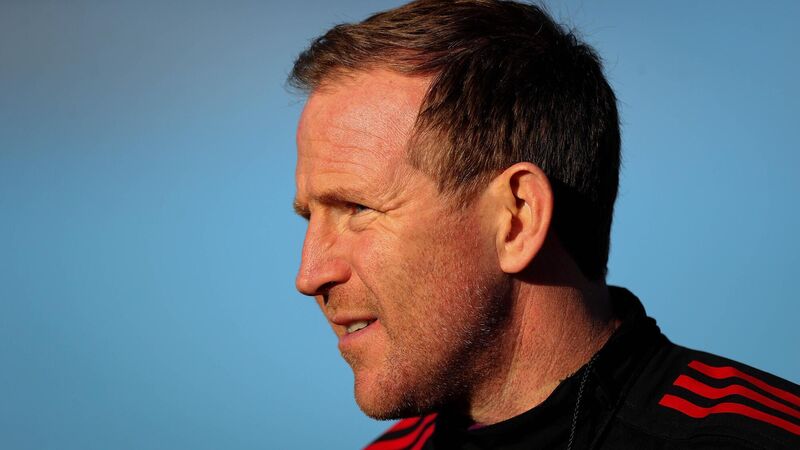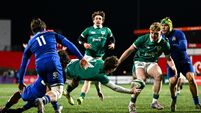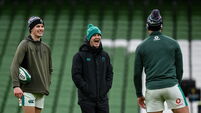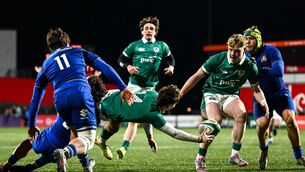With ball in hand, Munster no longer primarily focused on playing off nine

Munster Attack coach Mike Prendergast
The original masterplan for the 2022-23 season never had Graham Rowntree down as head coach, but given time, his appointment could truly signal a revival in Munster’s fortunes.
Munster, under previous head coaches, Rassie Erasmus and Johann van Graan, could be best described as a tier two team, capable of winning 75% plus of their games each season but when it came to winning silverware, were consistently short of the mark. For the bean counters and executives, heroic once-off results and/or knockout rugby with a large gate receipt was enough of a pass mark to get a head coach a new contract, but in reality Munster were slipping further and further away from the top table of Irish and European rugby.












